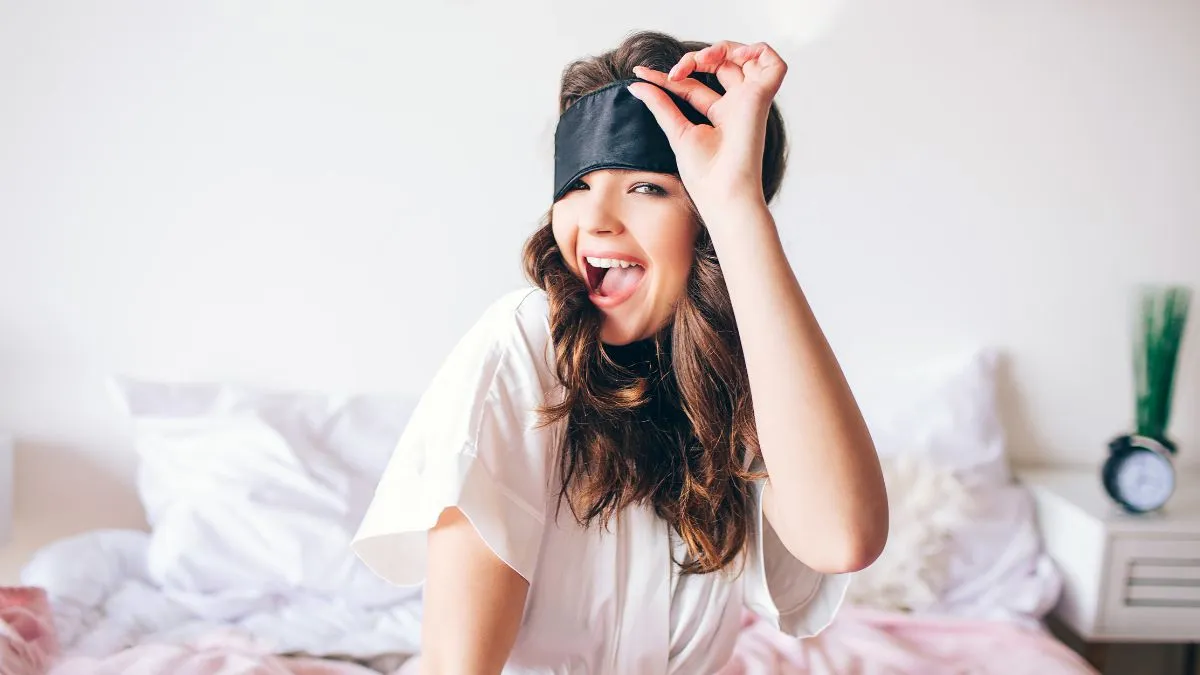- By Priyanka Munshi
- Tue, 22 Oct 2024 01:00 PM (IST)
- Source:JND
Benefit's Of Sleeping Mask: One simple way to enhance your sleep is by using a sleeping mask. Many people struggle with sleep issues, and do you know why sleeping masks are so popular? Sleeping masks help block out light, which is essential for your body to produce melatonin, a hormone that regulates your sleep cycle. In today’s world, artificial light from phones, laptops, and televisions can be harmful and distracting.
Using a sleeping mask creates a sense of calm and darkness, signaling to your brain that it's time to sleep and rest properly. For people who love traveling but have trouble sleeping, this is one of the best tools to include in their sleep routine, especially in unfamiliar environments. Sleeping masks are made from soft, breathable fabrics that are gentle on the skin. They also help reduce puffiness around the eyes.
Here Are The Benefits Of Using Sleeping Masks For Better Sleep:
Improved Sleep Quality
A sleeping mask improves the quality of your sleep by keeping your surroundings dark and cozy, which increases the production of melatonin, the sleep hormone.
No Distractions
Technology at home can keep you awake at night due to blue light and distractions. Using a sleeping mask can create a conditioned response in the brain, signaling it to fall asleep.
Treats Headaches
Photophobia, a common symptom of chronic migraines, makes recovery challenging during the day. A sleeping mask can help ease this discomfort.
Prevents Wrinkles
Many people are unaware that poor sleep can lead to more wrinkles and fine lines. Using a good silk sleeping mask can protect the sensitive skin around your eyes from friction damage.
Relieves Eye Strain
At night, distractions from devices like phones and laptops can disrupt your sleep. Sleeping masks offer relief and relaxation to the eyes, promoting better sleep.
(Disclaimer: This article is for informational purposes only. It is not a substitute for professional advice, diagnosis or treatment.)

